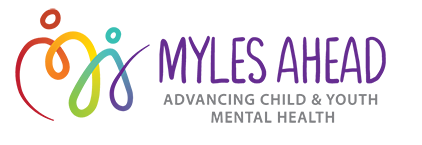Recently, a friend and fellow parent asked me to share what it is like trying to access youth mental health and addiction services during the pandemic. Where do I begin? This past year has been nothing short of a whirlwind involving endless attempts to save my teenage son from a point of no return. My family has been in crisis for over a year now. It didn’t start out that way. It was more like a slow burn. But once the fire ignited, it spread quickly. I liken my experience to traversing Dante’s Inferno. A symbol of our broken mental healthcare system. Up in flames. And this is coming from a seasoned social worker who knows how to navigate the resource maze.
Like all journeys involving the mind and heart, the shadowy world of addiction and mental illness has compelled me to speak out and take serious stock as to why the chronic waitlists and underfunding for youth treatment beds? Why the abysmal quality of youth services as a whole in Ontario? Even worse for racialized kids. When I reflect back on these past 12 months, so much time has been spent advocating for my son to get stabilized that it often feels like a full-time job. But when you love someone who is vulnerable, you do what you have to do!
For me, this involved haranguing my local MP, sharing real-time snapshots of “a day in the life of a youth in crisis” with Globe & Mail reporters, and signing petitions to hold our government more accountable for their policies and paltry distribution of youth treatment funding, even more critical during the pandemic with so many programs already shut down or scaled back to a virtual platform.
My spouse and I were astonished to discover the lack of rapid access to affordable counselling, rehab and respite services, not to mention short-term hospital stabilization stays for our son. While services are a challenge to find, marijuana is very accessible. Just because it is legal, doesn’t mean it is not addictive or detrimental to an adolescent’s brain development. THC today is much more potent than 20 years ago and pot purchased on the street is often cut with other substances, such as fentanyl. Over ¾ of all youth admissions to CAMH for psychosis are directly linked to pot use.
Accessing support for our son has carried a huge financial and emotional toll on our family and us as caregivers. Case in point. As our son’s behavior and mental health began to rapidly decline, my spouse developed an ulcer. The unrelenting chronic stress also led to chunks of hair loss. These are the silent fallout effects of families like ours trying to keep our heads above water, our sanity intact and our kids safe. The truth is you don’t know what you are up against until you are in the thick of a crisis and have to scramble for time sensitive supports in a lonely virtual world.
I suspect most teenagers (especially those living with ADHD, anxiety or depression) find sitting in front of a computer screen with a healthcare professional to be a real disconnect. It also doesn’t help when addiction centres and hospitals shut down their youth units to cater to an overflow demand for adult bed admissions during COVID. How can my son get the help he needs when they are closing critical in-patient youth services during such critical times? This makes no sense, and it leaves many parents with only one option – ER as the first point of mental health contact.
My personal experience with ER has been less than stellar if the truth be known. Unless a youth is self-cutting right in front of the triage clerk or in a psychotic state, there is no room at the inn. In fact, ER feels more like a revolving door where patients are whisked out as fast as they come in. Time is money. And most physicians I have met who work in this context possess a surprisingly limited understanding of addiction and the complex nuances surrounding mental health issues.
If COVID has taught me anything, it is that I cannot rely on the very system that is set up to “help” our kids. This supposed safety net of care I am required to navigate is full of holes which no one wants to take responsibility for – not the police or psychiatrists, not the politicians or the policymakers, and not the ER doctors or hospitals. Time and again, my spouse and I have pleaded for different service providers to please do something to help our son before it is too late. The response is always the same. Sorry ma’am. Our hands are tied. We agree the system is broken. But there is nothing more we can do.
Yes, there is actually something we can do. We need to change 3 things:
1) Current laws which require consent on the part of minors over 12 to access any treatment; minors who often lack the capacity to make inherently safe decisions.
2) The Mental Health Act needs to broaden its criteria for what qualifies as “self-harm” to include addiction as a mental health issue for at-risk youth needing to be formed.
3) Revamp the still antiquated medical model which continues to dominate the field not because of its effectiveness, but because of its close ties with the health insurance industry. While the medical model is useful as a compass for diagnosis and research, it leads to a lack of understanding and ineffective treatment interventions focused on symptoms, not underlying causes.
My family is still wading through the ups and downs of the pandemic, a kind of Hell in itself. But we are resilient. And we refuse to give up hope of healing for our son. While his behavior and mental health challenges continue to wax and wane, our mental healthcare system continues to teeter on the brink of obsoletion. So, if there are any practical pieces of advice I can share with parents/ caregivers, they are based on my own personal experience to try to help manage our challenges with our son.
Here are a few strategies that have helped us:
- Initiate weekly mental health family check-ins. Invaluable!
- Put a family contract in place (include rewards and consequences).
- Provide mentors/role models in their life.
- Get a psychological assessment if you suspect prolonged mental health concerns. Be a well-informed advocate for your child and don’t be afraid to question what the clinician says. Avoid the temptation to over-pathologize everything.
- Be vigilant about your own self-compassion as a parent/caregiver. Find safe, encouraging support outlets to avoid isolation and shame.
- Meet and get to know your kids’ friends.
- Help your kids find volunteer or paid work to keep them occupied and teach valuable life skills.
- Enforce appropriate curfews. Even if other parents don’t.
- Be in charge of all usernames & passwords for phones to keep track of your kids. Hold off on giving them a phone as long as you can and limit phone & social media time for optimal mental well-being. You can use free apps to turn on and off WI-FI and data. Lock up all electronics at night if needed.
- Don’t be afraid to check your kids’ bags or rooms if you’re concerned there is a change in behavior or friends, suspected drug/alcohol use, drop in grades.
- Lock up all your medications even if you think your kid is the best in the world. All it takes is one time for their curiosity or boredom to take over.
- Don’t be afraid to drug test them. Put it in your family contract if necessary.
- Watch for vaping which can cause serious lung damage and be a gateway drug for some. The products are marketed specifically to underage kids.
- Don’t believe it when they tell you “All kids are doing it.” They aren’t!
- Never give up on your kid!!!
ADDITIONAL RESOURCES
For Children: This resource is more for adults who interact with children given the subject area. The Partnership to End Addiction provides tips and language to help foster organic conversations that tie in prevention strategies throughout a child’s life.
For Youth: Youth Wellness Hubs provide addiction services for youth aged 12 – 25 – Access Open Minds provides a listing of sites in multiple provinces and the Northwest Territories, the Youth Wellness Hubs Ontario has several sites in Ontario, Youth Can Impact have 3 in Toronto, and The Foundry has a number of sites in British Columbia.
For Caregivers: Families for Addiction Recovery – the site contains resources and information, and more importantly they offer a few different peer support services, including one-to-one phone support, online parent groups, and a free phone support line. Speaking to someone who understands what you are going through can be a big help and a reminder that you are not alone.
For Educators: Schools Mental Health Ontario provides content and resources specific to substance use and addiction including helping teachers identify signs that substance use may be an issue, strategies to create a classroom culture that promotes mental health, tips to strengthen the classroom as part of the support system for a student at risk, how to connect and create a circle of support, and more.
By Kathryn Eve
Kathryn Eve is an addiction & mental health specialist living just outside Toronto, Canada with her spouse and son. She is also the founder of MakePeace International (
Kathryn graduated from the University of Toronto with a Bachelor of Arts degree in Psychology & English and a Master of Arts degree in International Relations from Deakin University in Australia. She recently completed certification in a two-year Spiritual Direction Training program from Regis College in Toronto and the Urban Spirituality Centre in Portland, Oregon. Kathryn is a member of Spiritual Directors International, ACTRA (the Alliance of Canadian Cinema, Television and Radio Artists) and SOCAN (the Society of Composers, Authors and Music Publishers of Canada).
In terms of publishing credentials, Kat
.

